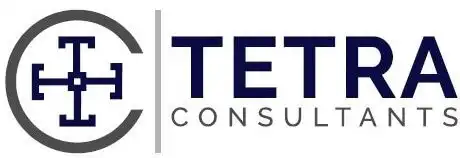Malaysia
Accounting Standards in Malaysia: Compliance and Best Practices

Contact Us
- Accounting Standards in Malaysia primarily follow International Financial Reporting Standards (IFRS), with adaptations made to create the Malaysian Financial Reporting Standards (MFRS) for larger business entities. Smaller businesses use the Malaysian Private Entity Reporting Standards (MPERS), which are less stringent and offer reduced compliance costs. Companies in Malaysia must comply with various regulations such as the Companies Act 2016, Bursa Malaysia Listing Requirements, Sarbanes-Oxley Act for US-affiliated companies, and the UK Corporate Governance Code for UK-affiliated companies.
- The Companies Commission of Malaysia (SSM) enforces financial reporting requirements, while the Audit Oversight Board (AOB) oversees auditors and their adherence to standards. The Malaysian Accounting Standards Board (MASB) develops and issues standards for entities, with ongoing updates to align with IFRS.
- For businesses that register company in Malaysia, adhering to these accounting standards is crucial for ensuring regulatory compliance and best practices in financial reporting. This robust framework supports transparency and accountability in the Malaysian business environment.
What is accounting standards in Malaysia?
- Accounting standards are a set of rules or principles that guide accounting practices at a national, regional, or global level. Before these standards were established, different countries operated under their own accounting regulations. As globalization intensified, accounting information began to play a crucial role in cross-border decision-making. However, this created challenges for decision-makers who were unfamiliar with varying accounting practices across countries.
- Prominent accounting standards include Generally Accepted Accounting Principles (US GAAP) and International Financial Reporting Standards (IFRS). US GAAP is predominantly used in the US, while IFRS is more common in Europe. Today, many countries, including Malaysia, utilize IFRS as the foundation for developing their own accounting standards.
- At Tetra Consultants, our experts offer specialized services to help you meet your accounting and tax obligations efficiently. We provide guidance and support to ensure compliance with the relevant accounting standards in your jurisdiction, helping you navigate the complexities of international financial reporting and local regulations.
Essential Accounting Standards in Malaysia
Bookkeeping
- Every company in Malaysia must keep accurate records and accounts to meet regulatory requirements. Financial reports play a key role in the accounting process and serve as essential business references. Important financial records include invoices, serially numbered receipts, income logs, and records of purchases and expenses, as well as accounting and statement records. Proper bookkeeping provides numerous advantages, such as a clear financial outlook and a better understanding of the company’s overall financial health. It helps gauge business performance, quickly identify potential financial mismanagement, and effectively track company expenses.
Annual financial statements
- Under section 248 of the Companies Act 2016, company directors are required to prepare financial statements within 18 months of the company’s incorporation date and thereafter within six months following each financial year-end. Before distribution, the financial statements must undergo an audit. The statements are then sent to every company member, eligible general meeting attendees, the company’s auditors, and any debenture holders.
- For public companies, these financial statements must be shared with the aforementioned parties and presented at the annual general meeting. Failure to comply with these requirements may result in fines up to RM 500,000, imprisonment for up to one year, or both for the responsible director.
Annual audit
- In Malaysia, all companies must undergo an audit unless they qualify for an audit exemption. Companies eligible for exemption fall into three categories: dormant, zero-revenue, or threshold-qualified companies.
- A dormant company is defined as one that has not conducted business or had any accounting transactions in the financial year. Zero-revenue companies qualify for exemption if they received no income during the current and past two financial years and their total assets do not exceed RM 300,000.
- For threshold-qualified companies, they must meet three criteria: annual revenue of RM 100,000 or less during the current and past two financial years, total assets of RM 300,000 or less during the same period, and a maximum of five employees at the end of the current and past two financial years.
- Additionally, sole proprietorships and partnerships are not mandated by Malaysian law to have their financial statements audited annually. These exemptions provide flexibility for certain smaller entities, aligning with the principles of accounting standards in Malaysia.
XBRL
- Many countries, including Malaysia, have embraced eXtensible Business Reporting Language (XBRL) for financial data processing due to its cost-effectiveness, efficiency, and accuracy. In Malaysia, the Malaysian Business Reporting System (MBRS) leverages XBRL to facilitate the submission of financial and non-financial information from registered companies.
- The financial components submitted through MBRS include financial statements and reports, annual returns, exemption applications related to financial statements and annual returns, statements of comprehensive income, balance sheets, statements of changes in equity, and cash flow statements. This streamlined approach aligns with Malaysia’s accounting standards and enhances transparency and consistency in financial reporting.
Accounting standards in Malaysia used by Malaysian finance professionals
Malaysian Financial Reporting Standards (MFRS)
- In Malaysia, larger business entities utilize Malaysian Financial Reporting Standards (MFRS), which are closely aligned with International Financial Reporting Standards (IFRS) to maintain consistency in financial reporting worldwide. All publicly listed companies in Malaysia adhere to MFRS. Financial professionals familiar with MFRS often possess a strong grasp of other accounting standards, such as Malaysian Private Entity Reporting Standards (MPERS) and Private Entity Reporting Standards (PERS).
Malaysian Private Entity Reporting Standards (MPERS)
- Malaysian Private Entity Reporting Standards (MPERS) are primarily employed by companies that are not publicly listed or have loan notes or shares not publicly traded. These standards are less rigorous and require fewer disclosures, providing smaller entities with the advantage of reduced compliance costs and less regulatory complexity.
USGAAP, JAPANGAAP and other Generally Accepted Accounting Practices (GAAP)
- Generally Accepted Accounting Principles (GAAP) are practiced in their respective jurisdictions and are often utilized when an entity’s head office is based in a country that follows a specific set of accounting standards. While Malaysian branches must prepare accounts in local standards, the reports submitted to their head offices are typically prepared using the standards of the head office’s jurisdiction.
- To manage the discrepancies between different accounting standards, a gap analysis is conducted by financial reporting personnel either at the head office or the local branch. This meticulous process identifies and resolves differences to ensure accurate financial reporting across jurisdictions. This process is crucial for maintaining consistency and compliance in financial reporting within the context of accounting standards in Malaysia.
Conclusion
- Tetra Consultants offers comprehensive support to help you navigate accounting standards in Malaysia. Our expertise covers both Malaysian Financial Reporting Standards (MFRS) and Malaysian Private Entity Reporting Standards (MPERS), ensuring your business stays compliant with local financial regulations.
- In addition to managing your accounting and tax obligations, we provide a range of services to seamlessly incorporate your company in Malaysia. These include nominee director and shareholder services, legal drafting services, corporate bank account opening, and more. By working with Tetra Consultants, you can focus on growing your business while we handle the complexities of accounting and compliance, setting you up for success in Malaysia’s dynamic business environment.
- Contact us to know more about accounting standards in Malaysia and our team will revert back in 24 hours.
Tetra Consultants
Tetra Consultants is the consulting firm that works as your advisor and trusted partner in your business expansion. We tell our clients what they need to know, instead of what they want to hear. Most importantly, we are known for being a one-stop solution for our valued clients. Contact us now at enquiry@tetraconsultants.com for a non-obligatory free consultation. Our team of experts will be in touch with you within the next 24 hours.





